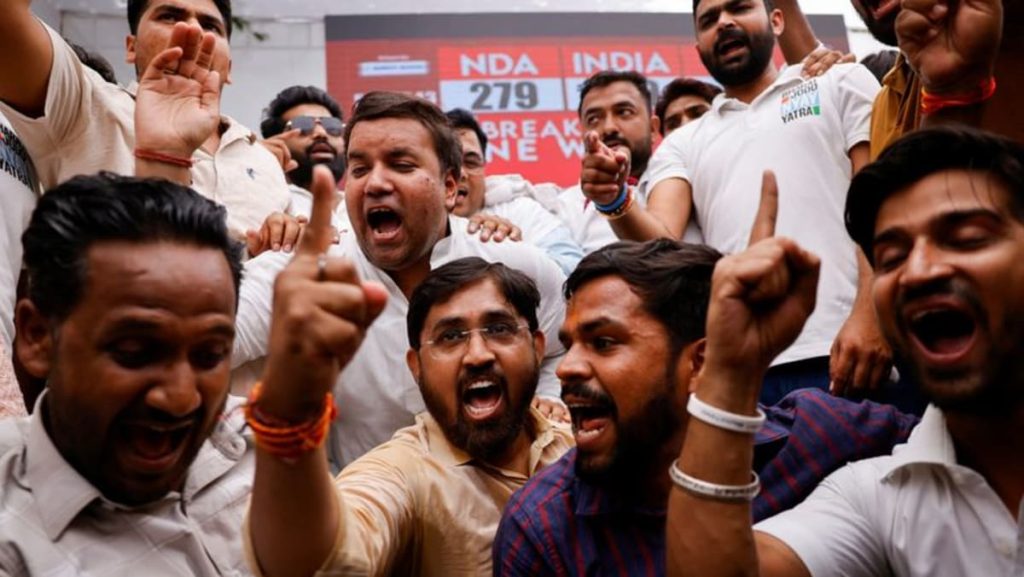India’s political landscape could potentially undergo significant changes in the coming years, according to experts. The country is expected to return to coalition politics, moving away from the cult of personality politics that Prime Minister Modi has promoted in the past. This shift could see a revival of alliance politics and a decrease in the concentration of power in New Delhi. Regional politics, particularly in South and East India, is expected to play a more prominent role at the national level, as at least two major coalition partners have significant influence in these regions.
Prime Minister Modi, known for aggressively centralizing power, may find himself in uncharted territory as he navigates a more fragmented political landscape. It remains to be seen whether he will be able to maintain the cohesion of his coalition partners, especially considering his past confrontations with political opponents. The opposition, which has been largely ineffective in recent years, may find a renewed sense of purpose in holding the government accountable. With the potential for more parliamentary opposition, citizens could have a more effective channel for voicing their grievances.
The upcoming changes in India’s political landscape could lead to a more pluralistic democracy, with power being distributed among multiple parties and regions. This shift away from a strong central authority could bring about a more balanced and inclusive political environment. While the coalition government may face challenges in decision-making and policy implementation, it could also foster greater collaboration and compromise among different political factions. The involvement of regional parties could lead to more regionally-focused policies and initiatives, addressing specific needs and concerns of diverse populations.
The role of the opposition in the new government will be crucial in ensuring accountability and transparency. With a stronger parliamentary opposition, citizens may have more avenues for recourse against government actions they deem unjust or oppressive. This could lead to a more robust and effective system of checks and balances, enhancing the overall functioning of India’s democracy. Additionally, the return to coalition politics could encourage greater participation and engagement from citizens, as their grievances and interests are represented by a broader spectrum of political parties and leaders.
Overall, the changes in India’s political landscape are expected to bring about a more decentralized and diverse political system, with power being shared among multiple actors. This shift towards coalition politics and regional representation could lead to a more inclusive and responsive government, better equipped to address the needs of a complex and diverse society. While there may be challenges in forging consensus and cooperation among different political factions, the potential benefits of a more pluralistic democracy are significant. As India enters this new era of politics, citizens can expect a more dynamic and engaging political environment, with opportunities for greater participation and representation.


